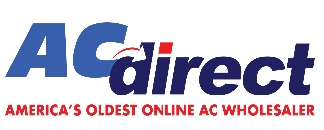The Hidden Value of Air Conditioning for Homes and Real Estate Markets
-
 By
Michael Haines
By
Michael Haines
- Jan 2, 2025

By Mike Haines 1/02 Air conditioning has become more than a mere comfort feature. It has become a significant factor influencing the housing market. The presence and quality of an air conditioning system can dramatically affect home values, buyer preferences, and overall real estate dynamics. In this comprehensive guide, we explore the economic impact of air conditioning on the housing market.
By examining how AC installations influence property prices, buyer behavior, and regional real estate trends, we aim to provide valuable insights for homeowners, real estate professionals, and HVAC suppliers alike. Whether you’re considering upgrading your current system or advising clients on property investments, this analysis will equip you with the knowledge to make informed decisions that align with market demands and financial goals.
The Economic Impact of Air Conditioning on the Housing Market
Air conditioning has become an indispensable feature in modern homes, particularly in regions with hot and humid climates. Beyond providing comfort, air conditioning systems significantly influence the economic dynamics of the housing market.
From boosting property values to shaping buyer preferences, the presence and quality of an AC system can determine the desirability and marketability of a home. In this article, we will look at the multifaceted economic impact of air conditioning on the housing market, examining how it affects home prices, buyer behavior, and regional real estate trends.
Key Highlights
-
Air Conditioning Boosts Property Value
- Homes with AC can see a value increase of 5%-10%, especially in hot climates like the southern U.S. and California.
- Modern, energy-efficient systems with high SEER ratings attract buyers due to lower long-term costs.
-
Influence on Buyer Preferences
- Effective air conditioning is a non-negotiable feature in hotter climates, leading to faster sales and competitive offers.
- Smart home technologies integrated with AC systems appeal to tech-savvy buyers.
-
Regional Real Estate Trends
- In regions like Phoenix, AC is a fundamental requirement, driving demand and impacting pricing trends.
- Even in milder climates, having a cooling system can enhance a property’s appeal and competitiveness.
-
Impact on Rental Markets
- Properties with AC attract tenants, allowing landlords to charge higher rents and reduce vacancies.
- Tenants value well-maintained HVAC systems, increasing retention rates.
-
Role in New Developments
- Air conditioning is now a standard feature in new constructions, boosting marketability and long-term value.
- Proactive AC integration during construction reduces future retrofitting costs.
-
Financing and Incentives
- Rebates, tax credits, and financing options make energy-efficient systems more accessible.
- Flexible payment solutions promote AC adoption and support real estate market health.
Air Conditioning and Property Values
One of the most direct economic impacts of air conditioning on the housing market is its effect on property values. Homes equipped with reliable and efficient air conditioning systems often command higher prices compared to those without. This premium is especially pronounced in regions where air conditioning is essential for year-round comfort, such as the southern United States, parts of California, and other hot climates.
Studies have consistently shown that air conditioning can increase a home's value by several percentage points. For example, a well-installed central air conditioning system can add anywhere from 5% to 10% to a property's value, depending on the local market and climate. This increase is attributed to the enhanced comfort, convenience, and overall appeal that AC systems provide to potential buyers.
Furthermore, energy-efficient air conditioning systems with high Seasonal Energy Efficiency Ratio ratings are particularly attractive to buyers looking to minimize long-term utility costs.
Homes with modern, energy-efficient HVAC systems not only offer immediate comfort but also promise lower operating expenses, making them a financially sound investment for future homeowners.
Buyer Preferences and Demand
Air conditioning plays a pivotal role in shaping buyer preferences and driving demand in the housing market. In areas where extreme heat is a recurring issue, homes with effective cooling systems are more sought after. Buyers prioritize properties that offer reliable and efficient air conditioning, often considering it a non-negotiable feature. This heightened demand translates to quicker sales and less time spent on the market for homes equipped with desirable HVAC systems.
Moreover, the advent of smart home technologies has further influenced buyer preferences. Modern air conditioning systems that integrate with smart thermostats and home automation platforms offer enhanced control and convenience, appealing to tech-savvy buyers. These advanced features not only improve the user experience but also contribute to the overall value proposition of the home.
Real estate agents and sellers recognize the importance of highlighting air conditioning systems during property showings and listings. High-quality AC systems are often showcased as key amenities that differentiate a property from others on the market, thereby attracting more interest and competitive offers from potential buyers.
Regional Real Estate Trends
The economic impact of air conditioning extends beyond individual property values to influence broader regional real estate trends. In regions with harsh climates, the presence of air conditioning can dictate the demand and pricing dynamics of entire neighborhoods or cities. For instance, in the Phoenix metropolitan area, the pervasive heat makes air conditioning a fundamental requirement for comfortable living, driving consistent demand for homes with robust cooling systems.
In regions with milder climates, the influence of air conditioning on real estate may be less pronounced but still significant. In these areas, the decision to install or upgrade an air conditioning system can be a strategic move to enhance property appeal and stay competitive in the market. Homes in transitional climates, where summers can be warm but not extreme, benefit from having flexible and efficient cooling solutions that cater to seasonal variations.
Additionally, urbanization and population growth in certain regions have amplified the economic impact of air conditioning. As more people move to urban centers with dense housing and limited outdoor spaces, the demand for efficient cooling systems increases. This trend is particularly evident in high-rise apartments and condominiums, where central air conditioning systems are essential for maintaining comfort in compact living spaces.
The Role of Air Conditioning in New Developments
New home developments and construction projects increasingly incorporate air conditioning as a standard feature rather than an optional upgrade. Builders and developers recognize that air conditioning systems are a key selling point that can attract buyers and justify higher price points. As a result, modern homes are often designed with integrated HVAC systems that emphasize efficiency, noise reduction, and aesthetic integration.
Incorporating air conditioning into the design phase of new constructions allows for more seamless and cost-effective installations. Centralized systems can be more efficiently integrated into the home's architecture, reducing the need for retrofitting and minimizing disruption for future homeowners. This proactive approach not only enhances the immediate marketability of the property but also contributes to long-term value appreciation as energy-efficient systems become increasingly important to buyers.
Impact on Rental Markets
Air conditioning also has a notable impact on the rental market. Rental properties equipped with reliable cooling systems are more attractive to tenants, particularly in regions with hot climates. Landlords who invest in high-quality air conditioning systems can command higher rental rates and experience lower vacancy rates compared to properties without adequate cooling.
In competitive rental markets, amenities like air conditioning can be decisive factors for tenants when choosing between multiple properties. Properties with well-maintained and efficient HVAC systems are often perceived as more desirable and comfortable, leading to increased tenant satisfaction and retention. This, in turn, reduces turnover costs and enhances the overall profitability of rental investments.
Financing and Incentives
The economic impact of air conditioning is further influenced by financing options and incentives available to homeowners. Many regions offer rebates, tax credits, and financing programs for the installation of energy-efficient HVAC systems. These incentives can significantly reduce the upfront costs of purchasing and installing air conditioners, making them more accessible to a broader range of homeowners.
Air Conditioner Financing options such as loans, leases, and installment plans also play a crucial role in facilitating the adoption of air conditioning systems. By providing flexible payment solutions, homeowners can invest in high-quality, energy-efficient air conditioners without straining their budgets. These financial mechanisms not only promote the adoption of advanced HVAC technologies but also support the overall economic health of the housing market by driving demand and investment in home improvements.
Final Thoughts
Air conditioning systems have a profound economic impact on the housing market, influencing property values, buyer preferences, and regional real estate trends. From boosting home resale values and attracting more buyers to shaping the demand dynamics in various regions, the presence and quality of an AC system are pivotal factors in real estate economics.
Knowing these impacts allows homeowners, real estate professionals, and HVAC suppliers to make informed decisions that align with market demands and financial objectives.
At AC Direct, we are committed to helping you navigate the complexities of the housing market with our wide range of high-quality air conditioners, furnaces, and mini-split systems. Whether you're looking to enhance your home's value, meet the preferences of discerning buyers, or stay ahead of regional real estate trends, our expert team is here to guide you in selecting the perfect HVAC solutions that cater to your unique needs.
Check out our extensive product offerings at AC Direct and discover how investing in the right air conditioning system can improve your home and market standing.
Supporting Data
-
Property Values
Air conditioning adds value, particularly in regions where it is essential for comfort.
https://www.eia.gov/todayinenergy/detail.php?id=52558 -
Buyer Preferences and Demand
AC systems, especially with smart features, are a priority for homebuyers in competitive markets.
https://www.nature.com/articles/s41467-021-26592-2 -
Regional Real Estate Trends
The presence of air conditioning influences pricing and demand in specific climate zones.
https://www.eia.gov/consumption/residential/reports/2009/air-conditioning.php -
Impact on Rental Markets
Tenants favor properties with air conditioning, increasing rental income and reducing vacancies.
https://www.kff.org/racial-equity-and-health-policy/issue-brief/disparities-in-access-to-air-conditioning-and-implications-for-heat-related-health-risks/ -
Financing and Incentives
Incentives and financing options lower the barriers to adopting energy-efficient HVAC systems.
https://www.energy.gov/eere/solarpoweringamerica/rebates-tax-credits

 and now, NASCAR Racing Sponsor
and now, NASCAR Racing Sponsor










